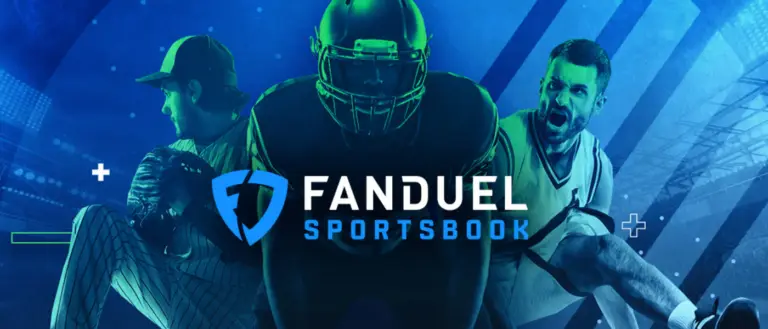The Online Gambling Sector Has The Itch To Vertically Hitch

Andrew Carnegie isn’t a name often associated with the world of online gambling.
However, the noted ‘Gilded Age’ Scottish-American industrialist would surely have appreciated the recent attempt by DraftKings to own the media, which it was previously willing to be merely a customer.
Carnegie bought up coke plants, oil derricks, railroads, and iron ore deposits to better control the entire steel manufacturing value chain. Called vertical integration, it’s a soup-to-nuts business style that is now very much in fashion. Think Elon Musk and his attempts to own the battery space alongside that of electric vehicles.
A Recent Spate of Vertical Integration
A fortnight back, DraftKings bought up Vegas Sports information Network (VSiN), the sports-betting broadcaster and content company, in a deal rumored to be worth around $100m. DraftKings’ Jason Robins said VSiN came with a content infrastructure designed to help consumers “who are looking to become more knowledgeable about sports betting.”
The move draws comparisons with Bally Corporation’s re-branding of Sinclair’s owned-and-operated regional sports networks (RSNs) to Bally Sports, replacing FOX Sports as the lead sponsor.
Naming rights is not strictly a form of vertical integration but more clearly in the Carnegie line is Bally’s recent buying spree which has seen it snap up in quick succession backend online gambling provider Bet.Works, fantasy sports outfit Monkey Knife Fight, and free-to-play games supplier Sportcaller.
The urge to take control of the means of production is catching. Another online gambling operator, Pointsbet got in on the act with the acquisition of odds-technology provider Banach Technology for A$43m in mid-March. That deal was hailed by Pointsbet CEO Sam Swanell “dramatically ramping” its in-play capability and was preferable to developing the technology in-house.
Vertical Challenges In The Online Gambling Industry
The ‘own the tech’ mantra was one of the main motivations behind the DraftKings merger deal with SBTech. What was evident at the time – and has only become more explicit in the year or more since the merger was completed – is that the needs of SBTech’s erstwhile B2B clients would get sidelined as the company concentrated on getting the platform fit for a DraftKings switch.
No surprise that Churchill Downs soon after announced that its BetAmerica online gambling brand – since renamed TwinSpires – would be moving to the Kambi platform. The lack of new platform deals involving SBTech since the merger also speaks volumes.
The same process will likely happen with Sportcaller, Bet.Works, and Banach. Clients will come to the table knowing the best they can hope for is to be second in the queue to the respective new owners of these businesses.
In an article looking at the new vertical integration trend in the online gambling industry, the FT quoted a supply-chain analyst who pointed to the questions that arise when a company sets out to buy up parts of its own hinterland. “Do you have the expertise to sell what they sell and would your competitors be willing to buy from a supplier owned by you?”
This last point is also relevant to the media deals. In the case of VSiN, is DraftKings really hoping that consumers will become “more knowledgeable about sports-betting” or simply more knowledgeable about sports-betting with DraftKings? There is a crucial difference.
And in the case of the Bally Sports RSNs, which of the other major brands will want to advertise on the network? And how do you connect with the consumer over the clarion calls to bet at Bally Sports?
Our guess is not a lot.
Consumers are Looking for Authenticity
Another problem each of them faces is that the online gambling consumer is more than aware of the other brands in the marketplace. Nobody using VSiN will miss that they are seeing content aimed at pushing consumers towards DraftKings.
Likewise with Bally Sports, where the marketing intention is plain enough from the name alone. This is done without looking at things from the perspective of sports fans that don’t bet. I know, it’s hard to believe given the current hype levels, but rumor has it there are sports fans out there that don’t gamble.
The question remains whether these viewers will be convinced by a sports channel where the name is all about betting. One of the lessons from the Sky Bet experience in the UK was that it worked because it was arm’s length from the Sky Sports broadcasting brand.
Taking it lying down
More broadly, there is a reason why suppliers exist. They can specialize, and they can invest in a product with the expectation of selling on a one-to-many basis in a way that in-house cannot. They also bring innovation.
At the present moment, that ‘own the tech’ mantra tends to point companies towards the vertically integrated model.
But the other trend in M&A towards simply building scale in the area where you specialize – otherwise known as horizontal integration – also clearly has its adherents in the online gambling space. That is particularly true in Europe, where companies such as Entain and Flutter – both effectively huge roll-ups of European gaming brands – hold sway right now.
Which of these two models is most appropriate for the US online gambling market will be one of the underlying themes for the next few years.
Scott Longley has been a journalist since the early noughties covering personal finance, sport and the gambling industry. He has worked for a number of publications including Investor’s Week, Bloomberg Money, Football First, EGR and GamblingCompliance.com. He now writes for online and print titles across a wide range of sectors.






